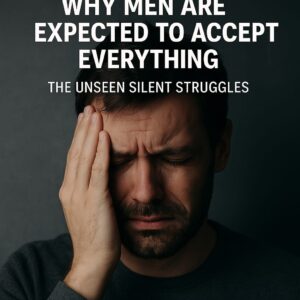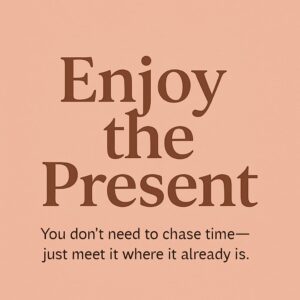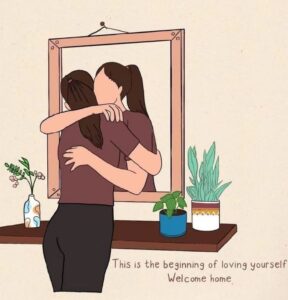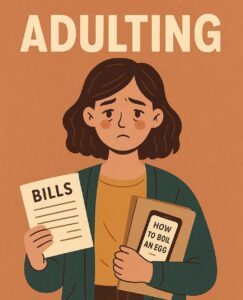WELCOME TO THE BLOGG TIME
Checkout our new blogs weekly.
 Is Social Media Making Us Less Social?
Is Social Media Making Us Less Social?
These days, the wheel of time is spinning fast—and so are our fingers, constantly scrolling on phone screens. From kids to the elderly, we’re all doing it.
We find it easier to hit like, share, or comment than to say, “You look nice today” in person. We’re all connected through Instagram, Facebook, WhatsApp, Twitter, and whatnot. But isn’t it strange? Even after staying updated with everyone’s life 24/7, we still feel… alone.
There was a time when meeting people, talking face-to-face, playing games together, laughing without filters—it all felt easy and natural. Whether it was 25 minutes or 5 hours, the time felt real. Now, even our jokes have shrunk into a simple “LOL” or an emoji. It’s easier to stay in touch online, but harder to talk in person with the very same people.
Sitting far away from everyone, we scroll through others’ happiness and end up comparing ourselves. “He’s doing better than me,” “What am I even doing with my life?” If we’re all so connected through social media, why are most youngsters struggling with anxiety and depression? Why does every second post feel relatable in a sad way?
The point is: Are we really connected this way?
Problems get solved when we talk face-to-face. But now, even years-old relationships end over a message. A warm hug has been replaced by a sticker, meeting someone is replaced by chats, and meaningful conversations are replaced by quick goodbyes. In real life, even silence shared between two people holds more meaning than a hundred messages sent online.
These online platforms aren’t just affecting our relationships—they’re slowly stealing our ability to speak openly, confidently, and emotionally.
I’m not saying social media is completely bad. Many are learning, expressing, and connecting through it. But the problem begins when we forget the difference between the real and the reel world. And that—honestly—feels like a curse. Because loneliness… haunts.
If we can just balance our screen time with real-life conversations, it can actually be a good thing.
Social media might connect us instantly—but it should never disconnect us from the real world.
Let’s not forget how beautiful it is to sit with someone, talk heart-to-heart, laugh freely, and truly feel the presence of our loved ones—not just watch them from afar on a screen.
(We are more connected than ever yet feel more alone than ever)
-Kirti Shukla
2.Why Mental Health Matters — Even If No One Talks About It

In today’s world, we talk about everything — what to eat, what to wear, where to go, what to do, which color nail paint or sunglasses to choose. But amidst all this, there’s one thing we often leave behind — mental well-being.
We spend so much time figuring out whether we’re hurting emotionally or mentally, that by the time we understand it, we’re already broken from within.
This pain doesn’t come with a broken bone or a fever. It’s an invisible ache, something that thousands of people hide behind their smiles every single day. But just because it’s not visible doesn’t mean it’s not real.
We get so caught up in the world around us that we don’t even recognize our own suffering. Anxiety, depression, burnout, and loneliness — these don’t always scream. They quietly consume you, even when everything seems “normal” on the outside.
Thinking to the point where it becomes dangerous — that’s not okay. Mental pain doesn’t just stay in your head. It affects your heart, your body, your hands, your legs — every part of you. And slowly, even death starts to feel like the only escape.
A person begins to lose not only emotionally, but physically too. They can’t win over themselves, or over their illness. It begins to impact their studies, their work, their home, their health — every relationship suffers.
We’ve been taught since childhood that expressing sadness is a sign of weakness. But if showing pain is “weak,” then shouldn’t we call suicide an act of courage? Why label it cowardice?
Lastly, I just want to say this — we should never stop ourselves from expressing our pain. Talk to yourself. Talk to your loved ones. They’re in your life for a reason.
And just as importantly — be someone your loved ones can open up to. Be approachable.
We never know which of our close ones might be silently thinking of giving up.
It doesn’t kill us to be kind — not to others, and certainly not to ourselves.
So be gentle. Be present. Be kind.
Because a little kindness… can truly save a life. maybe even yours!
Mental health matters because you matter. Your feelings are valid. Your struggles are real and your healing deserves time, space and love . Even if the world is silent about it let you be the voice that begins the conservation
-Kirti Shukla
3. Relationship & Bonds, Personal Growth

“Unchanged Habits vs Ever-Changing Bonds: Why Do We Crave Newness in Relationships but Not in Routines?”
Have you ever noticed how loyal we are to the small routines in life?
We pick one dosa stall and keep going back to it again and again.
We like our pani puri extra teekha and stick to that same vendor who gets the spice just right.
We have that one chai tapri, that one corner seat in class, that one side of the bed.
In these little habits, we find comfort. No one asks for change here. We don’t crave newness in them. In fact, any shift can feel annoying.
But when it comes to people—our friendships, our relationships, even our bond with our parents—we somehow begin to seek “something new.”
We want them to surprise us, understand us in changing ways, love us freshly, talk differently, grow constantly, and sometimes even “not be the same.”
Why do we demand change from people, but not from routines?
Maybe because routines give us control, a sense of safety, while people make us feel. And feelings aren’t always comfortable.
Routines stay still, but people evolve—and we expect them to evolve exactly how we want.
But just like we don’t expect our dosa to suddenly turn into a pizza, why do we expect our friends or parents to suddenly become different versions of themselves?
The truth is: the beauty in any bond lies in acceptance.
We keep returning to our favorite stalls not because they change, but because they don’t.
Imagine if we applied the same gratitude to our relationships—not always expecting excitement, but cherishing the consistency, the reliability, the warmth they offer even in silence.
It’s just like always craving something new and spicy to eat, but still finding real comfort in daal-chawal.
The newness might be exciting, but the comfort? It always lives in the old love.
-Kirti Shukla
4.Acceptance isn’t weakness. It’s strength in its softest form

What if I told you that real freedom begins the moment you stop trying to change who you are?
The moment you stop forcing yourself to fit into spaces that were never meant for you—that’s when acceptance truly enters the picture.
Acceptance doesn’t mean giving up. In fact, it means letting go of the exhausting fight to become someone you’re not. No one is perfect, and we shouldn’t strive to be. Chasing perfection is not only unrealistic but also dull. Instead, leaving room for growth and improvement says so much more about your character.
Acceptance brings calm. It helps you become more thoughtful, and most importantly, it fuels the drive to do more—not to prove anything to the world, but to prove something to yourself.
It’s not about passively allowing life to happen. Acceptance means recognizing what’s within your control and releasing what’s not. When you accept your flaws, your past, or even your quirks, you stop depending on external validation. And in that space, self-acceptance becomes the foundation of real confidence.
—
Let me share a story.
A young woman spent years preparing for her dream job at a top fashion company. She studied hard, built an impressive portfolio, and worked through unpaid internships. When the final interview came—she didn’t get selected.
At first, she was devastated. All her hard work felt wasted. She kept replaying the moment, wondering what she could have done differently.
But after weeks of struggling to accept reality, something shifted inside her.
She said to herself, “Maybe this wasn’t rejection. Maybe it was redirection.”Instead of staying stuck in regret,
Acceptance isn’t weakness. It’s strength in its softest form — the kind that calms chaos, heals wounds, and creates a foundation for joy.
– Sakshi Singh
5. Why are men always expected to accept everything? – the unseen weight of silent struggles

Time keeps passing, and we’ve always taught boys one thing — they have to be strong.
Strong in health, strong in wealth, strong in mind, and strong in physical strength.
But today, a question arises — why is the burden of being strong always placed on them?
Is it because their bodies carry more muscle mass?
Or because they speak less?
Is it because their silence is mistaken as their strength, and their tears as their weakness?
Why is it that even when they are just little babies, they are taught — “boys don’t cry”?
Why is it that when the question is about men, there’s never an answer to why?
The Silent Struggles They Go Through…
The world may never notice, but men go through silent storms every day.
They carry burdens we don’t see, fears they don’t speak of, and wounds they don’t show.
Dard ho dil mein phir bhi muskaan hoti hai chehre pe.
Apna sab kuch hume de ke bhi,
We ask them with all the audacity —
Kya hi kiya hai tumne?”
They give up their dreams to support ours.
They carry responsibilities without complaints.
And still, their efforts are questioned. Their pain goes unnoticed.
Their silence — misjudged as indifference.
But inside, they’re just people with tired hearts and quiet hopes.
Why is it that every time a man gathers the courage to express his expectations, he’s met with excuses or silence?
But when he fulfills our expectations without asking for anything in return, we rarely even notice — and often, we still find fault.
Why is it that in every situation, he’s the one expected to let go of his happiness for the sake of others?
Why must he always be the one to step forward, to fix what’s broken, to keep everything from falling apart?
Even when a relationship feels heavy on both sides,
the burden of holding it together often falls on him — quietly burning his hands while he says nothing.
And still, we say, “He doesn’t express much.”
Maybe it’s not that he doesn’t feel —
Maybe it’s that he’s never been allowed to.
They don’t ask for much but they deserve more!
Men are simple beings at heart.
They feel happy when we are happy.
If the people around them are smiling, they often forget their own pain — as if it never existed.
Their joy is borrowed from others. Their peace is found in our comfort.
I’m not saying we should treat them like kings.
But at the very least, we should try to understand their little things — with the same care and depth that they put into understanding ours.
We should be gentle enough — emotionally safe enough — that they can come to us and say:
“I can’t hold it all together anymore. Can I rest my head on your shoulder for a while?”
Because strength doesn’t mean they don’t feel tired.
And love isn’t just about what they do for us — it’s also about how we hold space for their softness.
Behind Their Anger, There’s Often Silence
We’re quick to sense a man’s anger.
We immediately say — “Why is he always so angry?”
We label it as his nature, his attitude, his flaw.
But how often do we just sit beside him, without judgment, and ask:
“What’s wrong, yaar? What’s bothering you?”
“Is something on your mind?”
“Do you need something?”
“Are you truly okay?”
Maybe that anger isn’t aggression — maybe it’s frustration.
Maybe it’s unspoken pain.
Maybe it’s exhaustion from being expected to hold it all together, while no one asks how he is really doing.
Sometimes, the only thing a man needs is for someone to notice he’s not okay — and care enough to ask.
Love Them As Gently As Their Souls Deserve
Treat men as gently as their souls deserve to be treated.
Yes, some may fall short, some may hurt — but not every mango in the basket is rotten.
We don’t blame the whole for the faults of a few.
The same goes for men. Just because some have failed to be kind, doesn’t mean all are unworthy of love or understanding.
Trust me, if you offer them just a little — a small thread of support, a drop of care —
they’ll give their entire life in return.
Because most men don’t want much — just love, care, and the feeling that someone truly sees them.
Let’s Ask Better Question?
The next time you see a man being silent, don’t just say “be strong.”
Say:
“It’s okay. You can talk. I’m here.”
Because behind every quiet man, there may be a loud storm waiting to be heard.
(वक़्त के सिवा तुम्हारे उनको किसी चीज़ की उम्मीद नहीं है।
तुम बस साथ दे दो और उनकी कोई जीत नहीं है।
जो हारे किसी मोड़ पर, वो तो उसकी हिम्मत बनो — इससे ज़्यादा उसकी तुमसे प्रीत नहीं है।
और ये सारे चरित्र अगर किसी एक शख़्स में आ सकें, तो वो ‘मर्द’ के अलावा कोई और नहीं है |)
*Translation*
(They don’t expect anything from you except time.
You just support them and there is no victory for them.
If someone loses at some point, be his strength – he doesn’t love you more than this.
And if all these characteristics can come in one person, then he is none other than a ‘man’.)
-Kirti Shukla
6. Parenting: A Journey of Presence, Not Perfection

Parenting doesn’t come with a manual, yet every day, we write our own pages—through love, chaos, and countless lessons in between.
It doesn’t have to be perfect. We learn alongside our children. After all, it’s our first time being parents too—we will make mistakes, and that’s okay. What matters is that we learn from them and keep moving forward. Parenting is like being on a rollercoaster you didn’t sign up for—but eventually, it becomes your favorite ride.
Parenting is deeply subjective. Everyone has their own definition of it, and today, I want to share mine.
To me, parenting isn’t just about teaching my children what I’ve learned—
It’s also about helping them discover what I never could.
It’s about giving them the freedom to form their own perception of life, instead of forcing them to see the world through my eyes.
Yes, parenting comes with a lot of responsibility. But I believe it’s not something we’re burdened with—it’s something we choose. And when we choose something with intention, we don’t do it out of duty; we do it with our heart. It has its own set of pros and cons—you make sacrifices, you adjust, just so you can give them the best.
But often, in our society, we stumble—not because we fail as parents, but because we stop thinking practically and get emotionally manipulated by societal standards.
To truly provide for your child, it’s important to pause, plan, and be intentional—so things fall into place at the right time.
We don’t have to be perfect parents. But we do need to be practical ones.
And as I said earlier—parenting is different for everyone. We all carry that lingering fear of missing something important, and that’s completely normal. There’s a line from Yeh Jawaani Hai Deewani that captures this so well : “Jitna bhi try karo, Bunny, life mein kuch na kuch toh chhutega hi.”
No matter how hard we try, we will miss a few things—and that’s okay. That’s life. That’s parenting.
The best way to influence your child is not by being a perfect role model, but by being your authentic self.
Be real. Be honest. Be present.
Set realistic expectations, not impossible standards. Show them it’s okay to have flaws, to fall, to begin again.
Parenting doesn’t always go smoothly. But what we can always do—is try. Try to give our best.
Being a parent doesn’t mean limiting yourself to a rigid role. In fact, sometimes the most powerful thing you can be for your child is a friend. Because when your child trusts you like a friend, they open their heart without fear.
Friendship in parenting doesn’t mean losing your authority—it means gaining their connection.
Discipline them with love. Laugh without judgment. That’s parenting like a friend.
Being a friend to your child means becoming their safe space—not their escape.
Your child may not remember every rule you ever made,
But they will always remember how you made them feel heard.
The strongest bonds are built when children know they can come to you—not just when they’re right,
But especially when they’re wrong. So guide them, but walk beside them.
So they know you’re not just a parent…
You’re a place they can always return to.
At the end of the day, parenting isn’t about being perfect—it’s about being present.
You won’t always have all the answers, but your love will always be enough.
It’s not just a journey of raising children—
It’s a journey of growing together, one honest, messy, beautiful moment at a time.
They may outgrow your lap,
But never the space you created in their heart.
As parents, we teach—but we also learn.
And perhaps the greatest lesson is this: to love, to be patient, and to show up.
Because parenting isn’t just about raising them—
It’s about being there, truly.
– Sakshi Singh
7. आजकल एक मुस्कान इतनी महंगी क्यों हो गई है?

कभी सोचा है, एक मुस्कान कितनी कीमती हो गई है आजकल?
आते-जाते, भीड़ में, कभी न कभी हमने किसी अजनबी को एक छोटी सी मुस्कान दी होगी।
ना जाने क्यों — न तो वो हमारे दोस्त थे, न ही हमारे क्लासमेट। बस यूं ही।
और हमें शायद पता भी नहीं चला, लेकिन उस “यूँ ही” ने किसी का दिन बना दिया हो।
क्या पता उसका किसी से झगड़ा हुआ हो?
क्या पता अभी-अभी किसी इंटरव्यू में उसे रिजेक्शन मिला हो?
या क्या पता उसने नए कपड़े पहने हों, और अंदर ही अंदर सोचा हो — ‘शायद आज मैं अच्छा लग रहा हूँ?’
एक छोटी सी मुस्कान, एक छोटी सी तसल्ली, कभी-कभी किसी के लिए उम्मीद बन जाती है।
पर आजकल लोग आँखों में आँखें मिलाने से भी घबराते हैं।
जैसे मुस्कान देना कोई उधार हो, जो वापस लेना मुश्किल हो।
दर्द बाँटने से कम हो न हो,
खुशी बाँटने से ज़रूर बढ़ती है।
हम किसी का दर्द उसके दिल से निकाल तो नहीं सकते,
लेकिन एक मुस्कान से उसके दिन का आधा घंटा ज़रूर बेहतर बना सकते हैं।
शायद हम उसकी परेशानी को न समझ पाएं,
लेकिन जब कोई थका-हारा हो,
और सामने से कोई अजनबी बस मुस्कुरा दे…
तो वो मुस्कान उम्मीद बन जाती है।
क्या पता जिस इंसान को आज तुमने सिर्फ़ एक पल के लिए मुस्कुराकर देखा,
वही कल किसी मोड़ पर तुम्हारा सबसे बड़ा सहारा बन जाए?
ज़िंदगी अजीब है। कब, कहाँ, कौन सा रिश्ता बन जाए — कोई नहीं जानता।
लेकिन एक मुस्कान से कहानी ज़रूर शुरू हो सकती है।
सोचकर देखो —
अगर हम सब थोड़ा सा खुलकर मुस्कुराना शुरू कर दें,
तो शायद ज़िंदगी थोड़ी ज़्यादा रौशन हो जाए —
एक-दूसरे के लिए, और शायद खुद के लिए भी।
मुस्कुराने में न तो मेरा बुरा है न आपका, तो उस मुस्कान को बरकरार रखिए।
– Kirti Shukla
8. Homes in Human Form: People Who Felt Like Places

Some people don’t just walk into our lives — they settle into us, like warm lights in old homes. They don’t feel like a moment; they feel like a whole place. A place where your soul could sit down, exhale, and just… be.
Have you ever met someone who felt like peace before they spoke?
Whose presence didn’t demand anything but gave everything — calm, comfort, and clarity?
They’re rare. But they exist.
Sometimes, they’re friends. Sometimes, they’re strangers you only meet once.
Sometimes, they’re lovers. And sometimes, they leave before you even realize you built a home in them.
They were a place — not a person.
A place where your worries paused.
A place where your loud thoughts whispered.
A place where your smile returned like it was waiting to bloom.
We talk so much about heartbreak from relationships, but no one talks about the grief of losing a feeling.
The grief of losing someone who felt like home.
And now, even when you walk into your real house, it doesn’t feel like home anymore — because home had a voice, a laugh, and a way of saying your name that made the world pause for a second.
We don’t always miss the person.
We miss how we felt in their presence.
We miss who we became around them — softer, lighter, more alive.
And maybe that’s the hardest part.
That we keep looking for that feeling in places, people, and memories —
Trying to return to a home
That was never made of walls.
Only of someone’s heart.
But what really is home?
Mere liye, ghar vo jagah hai
Jahan tumhara gussa
galat na samjha jaye,
Tumhare waqt ki tumse zyada kadar ki jaye,
Tumse zyada tumhe mehsoos kiya jaye.
Ghar — jo chaar deewaron se nahi, dil se bana ho.
Because in the end, home isn’t bricks and beams.
It’s the feeling of being seen without judgment,
Held without fear,
And loved without condition
– Kirti Shukla
9. “जब गुस्से के पीछे भी एक दर्द छुपा हो”

कल रात फोन हाथ में था, पर समझ नहीं आया कि किसको फोन करूं।
ऐसा अक्सर होता है.
लोग सोचते हैं मैं दुष्ट हूं, असभ्य हूं…
लेकिन क्या किसी ने कभी पूछा के मैं कितनी बार खुद से लड़ती हूं ताकि किसी को दर्द न हो?
गुस्सा थोड़ा ज़्यादा है, हाँ।
पर उस गुस्से के नीचे भी एक ध्यान है –
के मेरी वजह से कोई टूट ना जाए,
किसी की रात ख़राब ना हो,
किसी का दिन बेचैन ना हो.
मैं लोगों से दूर भागती हूँ,
बात करने से कतराती हूं,
क्यूकी मेरे शब्दों से ज़्यादा
लोगों के सवाल तकलीफ़ देते हैं।
“बात करो!” वो कहते हैं,
पर कभी ये नहीं सोचते
शायद मेरी बात उनके लिए नहीं,
सिर्फ मेरे लिए जरूरी हो।
समझो, हर इंसान बात करके हल्का नहीं होता।
कुछ लोग बात करते हैं
और उनका दर्द और गहरा हो जाता है,
क्योंकि सामने वाला सुनता तो है –
पर समझ नहीं आता.
हां, बात करना चीज़ों को आसान कर देता है…
लेकिन उनके लिए क्या,
जिनकी हर बात में लोगों को सिर्फ गलतियां दिखती हैं?
जैसे मैं.
और फिर एक सच:
शायद मैं बहुत कुछ नहीं बोलती, खुद में कहीं छुपाती हूं।
इसलिए नहीं कहना नहीं चाहती,
बाल्की इस बारे में जानता हूं – लोग पहले जज करते हैं,
महसूस करना बाद में या कभी नहीं।
मेरा गुस्सा मेरी सच्ची है.
जानती हूं ये मेरे लिए अच्छा नहीं,
लेकिन उस पर पूरा काबू भी तो नहीं।
मैं हर दिन खुद से लड़ती हूं,
और अपनों से सिर्फ इतनी सी चाहत रखती हूं –
अगर मैं समझ ना पाऊं,
तोह मुझे बार-बार मत पूछो।
तकलीफ़ देने से जवाब नहीं मिलेगा…
लेकिन मेरी लगी चोट को
आप हर बार एक नया ज़ख्म दे जायेंगे।
बस इतना चाहती हूँ:
एक ऐसी जगह,
जहां मैं खुद को छुपा ना पाऊं,
और समझ किसी की जिम्मेदारी जैसी ना लगे।
एक घर हो,
जिसमें बस अपनों का साथ हो –
बिना सवालों के, बिना शर्ते के।
सिर्फ एक सच्चा साथ.
– Kirti Shukla
10. The power of saying “No” : Setting boundaries without any guilt.

Saying “no” shouldn’t come with guilt, yet somehow, it always does.
Don’t you think every time you say yes to something that you don’t want to… you say no to yourself. Why is it so hard to say two simple letters — N and O — without overthinking it a hundred times? What if the fear of disappointing others is actually keeping you from living your truest life?
We’re taught to be polite, agreeable, and always available — but what if that’s the very reason we feel stuck?
Not every opportunity deserves a “yes.” Some are just distractions in disguise. I used to be the person who said “yes” to everything — until it left me drained, overwhelmed, and invisible to myself. It took me years to realize that saying “no” isn’t rude — it’s self-respect in action. Saying “no” felt selfish… until I understood it was the first step to protecting my peace. When you draw a boundary, you’re not building a wall – you’re building a bridge back to yourself. A place where your needs live safely, where your time is respected, and your heart is held gently — by you, first. Boundaries don’t make you unkind. They make you honest. And honesty, in a world of masks, is a quiet form of courage.
At first, “no” feels like betrayal.
Like you’re disappointing someone who counts on your yes.
But give it time.
Soon, “no” begins to taste like peace,
like deep breaths, like sleep without stress.
You begin to notice:
the world keeps spinning,
and you feel lighter just standing still.
Saying “no” isn’t rejection — it’s redirection.
It’s choosing presence over pressure,
peace over pleasing,
alignment over obligation.
Saying no helps you conserve your mental, emotional, and physical energy for what truly matters — instead of scattering it on things that drain you. Each time you say no to something misaligned, you say yes to your values. This strengthens your confidence and teaches others how to respect your boundaries.
Let me tell you a short story : “The Tea Cup”
Aanya was the kind of girl everyone relied on.
Need help with homework? She was there.
Extra shift at work? She never said no.
She said yes so often, she forgot what her own voice sounded like when it disagreed.
One evening, her grandmother handed her a cup of tea, full to the brim.
“Now walk with it,” she said.
Aanya took a step. Tea spilled.
“Again,” said her grandmother, refilling the cup.
This time, Aanya moved slowly, carefully watching her balance.
“You see,” her grandmother smiled,
“When your cup is full, you have to move mindfully.
If you rush, just to serve everyone else, you lose yourself drop by drop.”
That night, Aanya declined a plan she didn’t have energy for.
She turned off her phone.
And for the first time in a long while,
she chose peace over pleasing.
She learned that “no” wasn’t selfish.
It was sacred.
No is a sentence.
No is a full stop — not a comma followed by long-winded excuses to justify your own needs. You are allowed to honor yourself without explaining yourself. You don’t owe anyone constant access to you.
You don’t have to twist yourself into versions that are easier to love. Say yes when it’s a soul yes. Say no when your body hesitates,
when your heart whispers otherwise. And remember: No isn’t the end of connection. It’s the beginning of self-respect.
– Sakshi Singh
11. “वो दूसरा बचपन, जिसे हम नज़रंदाज़ कर गए”

कभी सोचा है, कितने जरूरी होते हैं ये बुजुर्ग लोग हमारी जिंदगी में?
हम कहते तो हैं – “बुद्धपा दूसरा बचपन होता है” – पर क्या वकै हम हमें बचपन जैसा प्यार, देखभाल और सुरक्षा उन्हें दे पाते हैं?
एक छोटा बच्चा रो के अपनी तकलीफ़ जानता है, मगर बुज़ुर्ग?
वो तो चुप हो जाते हैं…
उनकी आँखों में दर्द होता है, पर उनकी जुबान पे नहीं।
वो आश्रय हो जाते हैं, पर आसरा मांग नहीं सकते… क्योंकि उन्हें पता है – हम उन्हें वो सुरक्षा, वो भरोसा नहीं दे पाते।
बस इतना फर्क है एक छोटे बच्चे में और एक बुजुर्ग में:
बच्चा उम्मीद से रो लेता है
बुज़ुर्ग समझ कर चुप हो जाता है
बोली और समझ का फ़र्क
हमें उनकी बोली, उनका तरीका अजीब लगता है…
कभी-कभी तो उनकी बात चुभ जाती है।
“रहने दीजिए ना, आप नहीं समझोगे…”
“अरे आपके टाइम पर क्या होता था…”
ये लाइन सिर्फ उनका जज्बा नहीं तोड़ती, बल्कि उनका संबंध भी कमजोर कर देती है।
उनकी बोली भाषा हमें कड़वी लगती है, लेकिन उसमें कोई गलती नहीं होती।
उनके शब्दों में समय बसा होता है, और समय से बड़ा गुरु कोई नहीं होता।
वो बस चाहते हैं कि जैसे उनको हमारा हाथ पकड़ के हमें चलना सिखाया,
वैसे ही अब हम उनका सहारा बन जाएं – बिना उन्हें ये महसूस करवाएं कि अब वो कमज़ोर हो गए हैं।
एक कश मिल लेती जो हमेशा मेरे साथ रहेगी
मैं एक कहानी शेयर करती हूं आप सबके साथ…
मेरी नानी कुछ महीने पहले एक्सपायर हो गई, और सबसे बड़ा दर्द ये है की
मैं उनसे आखिरी बार मिल भी नहीं सकी।
जब उन्हें हॉस्पिटल में एडमिट किया गया, तब दिल में उम्मीद थी कि वो वापस घर आएंगी –
पर ये उम्मीद भी उन तक दोबारा मुझे ले नहीं जा सकी।
एक रात, उन्हें तेज़ बुखार था। उसी रात – सुबह 3-4 बजे के आस-पास –
मुझे अचानक हिचकियाँ आने लगीं।
मुझे याद आया, नानी कहा करती थी – जब हिचकी आये, समझो कोई अपना याद कर रहा है।
मैंने उनका नाम लिया… और मेरी हिचकी रुक गई।
एक दोस्त के लिए डर गया दिल… सोचा, कॉल करूँ?
लेकिन सोचा सुबह कर लुंगी…
सुबह हुई, पर अब वो बोल नहीं पा रही थी…
और जब मैं ट्रेन से पूछी, वो दुनिया से जा चुकी थी।
उनसे मिलना, उनका हाथ पकड़ना, उनकी बात सुनना – सब कुछ मेरे नसीब से छूट गया।
ये दर्द मैं जिंदगी भर अपने साथ जीऊंगी…
लेकिन जो चीज़ मुझे जीने देगी,
वो है उनका प्रेम, उनकी बातें, उनकी सीख।
हर मोड़ पर, हर फैसले में, वो मुझे सही-गलत, अपना-पराया, प्यार-और-हक सब समझती रहेगी।
उनका प्रेम, उनकी चुप्पी
वो हमसे कह के कुछ नहीं मांगेंगे,
पर ये हमारी ज़िम्मेदारी है कि हम उनकी अनसुनी बातें भी सुन सकें…
जब हम बोल भी नहीं पाते थे,
तब उन्हें हमारी भूख, प्यास, तकलीफ सब बिन काहे समझ थी।
जैसे हमारे मम्मी-पापा के लिए माँ-बाप बनना एक नया अनुभव होता है,
वैसे ही हमारे नानी-नाना, दादा-दादी के लिए भी…
उनका हाथ अगर आज भी सर पे है,
तो खुद को सबसे ज्यादा खुशनसीब समझो।
क्योंकि ये छूटा हुआ जीवन,
जब जिंदगी बिखरने लगे,
तो यही संभालने का सबसे बड़ा सहारा बन जाता है।
और एक बात, जो हम सब भूल जाते हैं…
हम सब जिंदगी एक ही बार जीते हैं।
सिर्फ हम नहीं…वो भी.
हमारे मम्मी पापा, हमारे नानी-दादी, दादा-नाना –
उनका भी सिर्फ एक ही जीवन था, है, और होगा।
हम उन्हें बड़ा समझाकर उनकी हर बात पर फैसला लेते हैं,
पर कहीं उनका “दूसरा बचपन” हमसे छूट तो नहीं जा रहा?
अगर अपने अतीत में कोई फैसला गलत लिया था,
तो ये हमारी ज़िम्मेदारी है कि उन गलतियों को ताना बनकर ना जियें,
बाल्की उनका हाथ पकड़ कर उन्हें एक सुकून भरा आज दे सकें।
क्या पता…
उनकी एक अच्छी नींद, उनके सुकून भरे पल, उनकी बिना डर की सांसें – ये सब कुछ आपके एक प्यार भरे व्यवहार पर टिका हो।
इस्लिए…
उनके साथ वक्त बिता लो…
क्या पता किस दिन वो आखिरी बार “बेटा, सुनो जरा…” कह रहे हो।
उनका हाथ पकड़ लो, उनकी बातें सुन लो…
क्योंकि वक़्त वापस नहीं आता…
पर आज अगर दिल से निभाया जाए, तो अफ़सोस कभी लौट नहीं आता।
– Kirti Shukla
12. Healing Isn’t Always Loud — Sometimes It’s Just Breathing Through the Day.

Not Every Battle Has a Sound
Healing doesn’t always look like breakthroughs or dramatic changes.
Sometimes, it’s just waking up, brushing your hair, and showing up for the day — when every cell in your body wants to hide.
We often think healing should be bold, loud, full of light and clarity.
But real healing? It’s quiet. It’s slow. It’s painfully patient.
It’s that deep breath before getting out of bed. That one text you finally replied to. That one meal you didn’t skip.
Healing, sometimes,
is choosing to exist —even when
everything inside you
Is still aching.
Don’t Force Yourself to Heal Overnight
Healing doesn’t mean you start today and wake up fine tomorrow.
It doesn’t work that way — and it’s okay.
It takes time.
Time for your body to stop flinching.
Time for your heart to stop aching.
Time for your mind to stop replaying every what-if.
Don’t force yourself
to be healed.
And don’t pretend you’re okay just because others expect you to be.
Healing is not a deadline.
It’s a gradual process, full of pauses, relapses, and silent victories.
Just like you care for the people you love —
Learn to care for yourself with that same gentleness.
Because healing truly begins when you start loving yourself again.
When Pretending Feels Easier Than Healing
When life chose to hit me with storms,
I told myself I was doing better.
I met new people every day, I smiled in crowded rooms, I laughed like nothing was broken.
But I was wrong.
Just because I was trying to pretend I was okay,
Doesn’t mean I was.
Every night, my heart would ask me the same question —
Over and over —
A question I kept running from all day long.
And in that silence, I realized:
I wasn’t healing.
I was hiding.
The Pressure to “Move On” Hurts More Than the Pain Itself
People around you may expect a deadline for your grief.
“How long will you hold on to this?” they’ll ask.
But wounds aren’t clocks.
You don’t owe anyone a timeline for how long it takes to feel okay again.
Sometimes, just surviving is your success.
Small Wins Deserve Loud Applause
Did you drink water today?
Take a walk? Avoid texting someone you know will only hurt you again?
Those are victories.
Not every win is a spotlight moment. Some are whispers of self-respect.
Healing is often
found in the
moments no one
sees — but you feel.
You’re Allowed to Be a Work in Progress
Don’t compare your chapter 3 to someone else’s chapter 20.
Some people heal through journaling, others through silence.
Some move forward by talking it out, others by not talking at all.
You’re allowed to not have it all figured out.
You’re allowed to still cry.
You’re allowed to take time.
The Quiet Kind of Strength
There’s a different kind of strength in softness.
In not yelling at the world when you’re hurting.
In choosing peace instead of revenge.
In still hoping — even when you have every reason not to.
Healing isn’t the loud
of scream of “I’m
better now!”
It’s the soft whisper of “I’m trying… and that’s enough.”
You Don’t Need to Be Whole to Be Worthy
You can be healing and still be loveable.
Still be kind.
Still be worthy of everything good.
You are not “too broken.”
You are not “too much.”
You are enough, even in your mess.
Let Healing Be What It Needs to Be
It doesn’t have to make sense to anyone else.
Let it be messy. Let it be slow. Let it be yours
Healing isn’t always
loud.
Sometimes, it’s just choosing to breathe through the day.
And that’s more than enough.
Are you healing quietly too? What does your healing look like today?
You’re not alone — and you’re doing better than you think.
– Kirti Shukla
13. Be Here Now: The Only Place Life Happens

The past is a closed book, the future an unread chapter. But today? Today is still being written—and it’s in your hands.
We’re stuck with regrets that we often forget that by not living in very moment we are just adding one more. Replaying old hurts, regrets, or “what ifs” keeps your mind trapped in a cycle of guilt, sadness, or anger—often long after others have moved on.
Growth requires change. When you’re stuck in old versions of yourself or your life, you’re unable to evolve or open yourself to new opportunities.
When your focus is behind you, it’s hard to appreciate the good around you—today’s laughter, love, and little wins go unnoticed.
Similarly, Overplanning the future can lead to inaction today. You become so focused on getting it “right” later, you stop doing anything now. Chasing an ideal future can lead to disappointment. Reality rarely matches the fantasy, and you risk always feeling like something is missing. We spend so much time mourning the past or fearing the future, we forget the only moment we truly have—this one.
The past has its place—it teaches, shapes, and reminds. But when we linger too long in what was, we begin to lose touch with what is.
We miss new opportunities because we’re clinging to old identities.
We exhaust ourselves replaying things we can’t change.
We block joy because we’re too busy comparing today with some version of “before.”
The truth is, you can’t change the past—but you can choose what you carry from it.
Living in the now keeps you grounded. Instead of getting stuck in regret or anxiety, you learn to breathe, be still, and respond calmly to what’s real. When you’re mentally present, people feel it. Conversations are richer, moments more meaningful, and relationships more authentic. The present is where gratitude grows. By paying attention to what you already have, you realize how much beauty surrounds you. When you live in the present, time feels richer. You’re not rushing through life—you’re living it.
You don’t need to chase time—just meet it where it already is.
– Sakshi Singh
14. Stationary Is Also Peace

In a world that never stops moving —
where everyone’s in a race to reach somewhere, achieve something, fix everything —
slowing down can feel wrong.
But what if it’s not?
What if being stationary isn’t failure, but freedom?
To pause… to breathe… to just be —
isn’t that what we’re all secretly craving?
Taking time for yourself doesn’t mean you’re behind.
It means you care enough to stop and truly understand:
what you want, what you feel, and what truly matters.
Sometimes, it’s in stillness that we meet our most honest self.
And when you give yourself that space —
whether it’s in your career, relationships, or life decisions —
you return stronger. More aligned. More clear.
Because once you’ve allowed yourself to feel deeply,
to reflect without pressure,
you only move forward — never backward.
Stillness isn’t being stuck.
It’s preparation.
It’s healing.
It’s where inner peace grows quietly and strength gathers silently.
Not every step in life needs to be fast.
Some need to be gentle.
Some need to be still.
Stillness isn’t weakness.
It’s the space where clarity grows.
Where broken things gently begin to mend.
Where your inner compass starts working again.
Not every moment needs action.
Some moments just need attention.
So if you ever feel stuck, don’t compare yourself to those who seem far ahead.
This stillness visits every one of us — in different ways, at different times.
And when it does,
it often brings out the most beautiful version of who we are becoming.
Let it.
You ever feel like pausing, don’t fight it.
Don’t let the noise outside rush your peace inside.
Because sometimes,
being stationary is the most powerful movement of all.
– Kirti Shukla
15. Keep Choosing Yourself — Even If No One Understands

We all crave to be understood.
We grow up hoping someone will always come through for us.
Someone will notice our pain, pick us up when we fall, choose us — again and again.
But with time, we learn something uncomfortable yet liberating:
No one really cares… at least not like you do.
And maybe that’s the sign — to stop waiting, and start showing up for yourself.
In the quiet corners of our minds, we hold onto the hope that someone — anyone — will look at us and just get it. That someone will see through the “I’m fine” and realize we’re breaking. That someone will care enough to stay, fight for us, check in without being asked.
But the truth?
Most people don’t notice.
Not because they’re heartless. But because they’re busy carrying their own unseen battles.
And somewhere between expectations and disappointments, we’re forced to learn one of life’s hardest lessons:
You have to choose yourself. Again and again. Especially when no one else does.
It’s not selfish — it’s survival.
Because waiting for someone else to rescue you only leaves you drowning.
Because expecting others to fill your voids only leads to deeper emptiness.
Because constantly trying to be “enough” for others is the fastest way to lose yourself.
So start showing up for you.
Be the one who asks how you’re really doing.
Be the one who rests when you’re tired, eats when you’re hungry, and walks away when your soul feels suffocated.
Be the one who gives yourself the love you keep giving to everyone else.
And don’t wait for applause.
Don’t expect people to notice your strength, your growth, your pain.
Because the most powerful transformations happen quietly — when no one’s watching, but you’re still healing anyway.
And when you start choosing yourself, be prepared:
People will try to make you feel guilty.
For choosing peace over pleasing.
For walking away from what broke you.
For saying no when you’re expected to say yes.
For finally putting yourself first.
They’ll question your choices.
Twist your decisions.
Make you feel like you owe them an explanation — or worse, an apology — for finally doing what’s best for you.
But here’s the truth:
They won’t be the ones who have to survive your storms.
They won’t feel the weight of your sleepless nights, the burn of your buried dreams, the ache in your chest when you live a life that’s not yours.
So why let them dictate your path?
You are the one who has to live with the choices you make — every single day.
You are the one who has to carry their consequences, feel their impact, and walk their roads.
So make those decisions for you.
Unapologetically.
Unshakably.
Because at the end of the day, when everything and everyone fades —
the only person who will truly, deeply, and fully matter in your survival… is you.
So keep choosing yourself.
Especially when it’s hard.
Especially when it’s lonely.
Because your healing, your peace, your life — was never meant to be a group decision.
Because you are necessary for you. What matters most is that you stand beside yourself — not that others do.
Keep choosing yourself — no one really cares like you do.
And that’s not bitter, it’s freeing.
Because once you stop waiting for others to save you,
you start saving yourself.
Keep choosing yourself.
Not out of pride, but out of peace.
Because in the end, most people are too caught up in their own storms to notice your rain.
– Kirti Shukla
16. When ‘Later’ Becomes ‘Now’: The Rollercoaster Called Adulting

I used to think adulting meant staying up late and eating ice cream for dinner.
Turns out, it’s just paying bills and Googling “how to boil an egg.”
Nobody really tells you when you become an adult—you just wake up one day with a to-do list longer than your weekend.
Adulting is realizing that nap time was actually a privilege, not a punishment.
Growing up isn’t just about age—it’s about learning to carry responsibilities, pay bills, make choices, and sometimes… cry in the car before showing up with a smile.
As kids, we imagined adulthood would be so much fun—
We’d be free, we could wear whatever we want, we’d have endless friends and parties.
And now? We’re left with a big question:
Do we even have time for all of that?
We’ve caught up in so much that we sometimes forget—
We are earning to live, not living to earn.
Adulting is exhausting, yes—
But it’s also where you slowly start building a life that’s entirely your own.
It doesn’t have to be perfect.
There’s no roadmap for growing up—just a path you carve with every mistake, lesson, misunderstanding, and small victory.
We step into adulthood not all at once, but in quiet moments—
Choosing growth over comfort,
Responsibility over escape,
Presence over perfection.
Facing adulthood is a challenge.
There are times we’re scared—of responsibilities, the real world, real problems.
But don’t you think we miss out on the moments that actually shape us?
The ones that carve us through every hurdle and open doors to new opportunities?
Our younger self had so many expectations and hopes.
And adulting teaches us—
Sometimes, expectations break.
Sometimes, hopes shift.
—
 Younger Self:
Younger Self:
“When I grow up, I want to do whatever I want, whenever I want!” Adult Self (smiles tiredly):
Adult Self (smiles tiredly):
“Yeah… turns out that means paying rent, cooking dinner, and managing 17 tabs in your brain at once.”
 Younger Self:
Younger Self:
“Do you get to stay up all night?” Adult Self:
Adult Self:
“I do… but not for cartoons. It’s mostly stress, deadlines, and overthinking things I can’t change.”
 Younger Self (eyes wide):
Younger Self (eyes wide):
“Wow. That sounds… hard. Are you okay?” Adult Self (pauses, soft smile):
Adult Self (pauses, soft smile):
“Some days are hard. But I’m learning to rest, not quit. I laugh, I cry, I grow. I’ve got this.”
 Younger Self:
Younger Self:
“Do you still dream?” Adult Self (looking up):
Adult Self (looking up):
“Yes. But now, I also work for them. Every. Single. Day.”
 Younger Self:
Younger Self:
“I hope you’re proud of me.” Adult Self (whispers):
Adult Self (whispers):
“I am. And I hope you’re proud of who we became.”
—
A Reminder:
Accept that it’s messy — and that’s okay.
Adulting doesn’t come with a manual.
Some days you’ll feel completely lost.
Other days you’ll feel like you’ve got it all figured out.
Both are valid. Both are part of the journey.
Perfection isn’t the goal. Progress is.
– You’re not behind. You’re building.
– Sakshi Singh